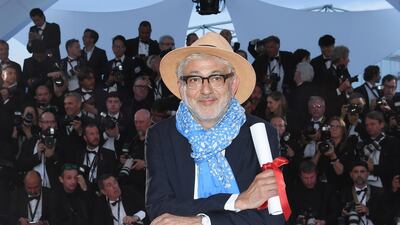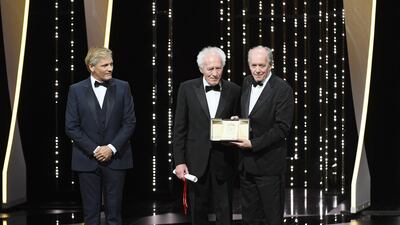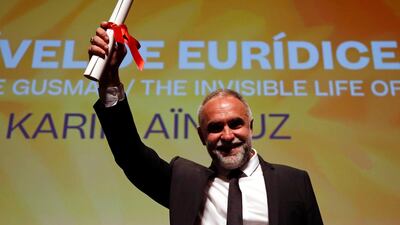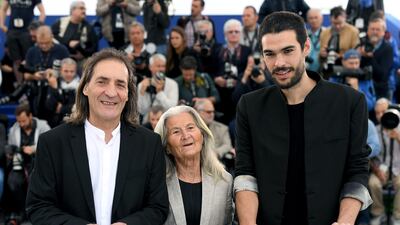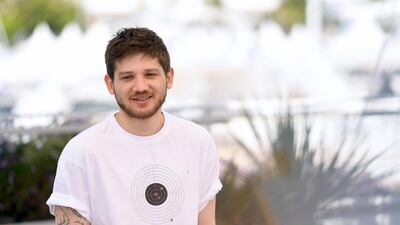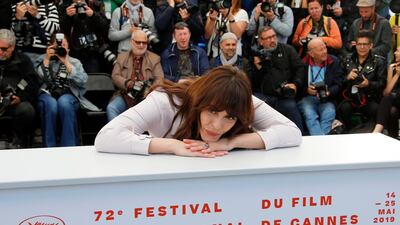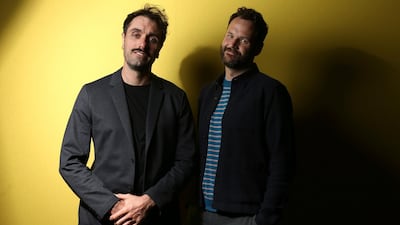Elia Suleiman's latest satire, It Must Be Heaven, was awarded the Jury Special Mention award at the Cannes film festival on Saturday night, ensuring the acerbic comedy didn't go home empty handed.
Click though the gallery above to see all of the winners at the 2019 Cannes Film Festival.
Earlier that same evening, the International Federation of Film Critics (FIPRESCI) awarded the film their top prize International Critics’ Trophy.
A couple of hours before the awards ceremony, I sat down with the 58-year-old director in front of a beach in Cannes to discuss his new work. It was in that moment of high anticipation where the director had been told the jury had awarded the film a gong, but he did not know which prize he would get. The dream about the Palme d’Or was still very much alive.
It Must Be Heaven as with his previous three feature films is written, directed and starring Suleiman. The Palestinian auteur plays a character based upon himself, albeit a version of himself that doesn't talk, instead making comments through gesticulations and eyebrow movements in a burlesque style that is often compared to the work of French great Jacques Tati.
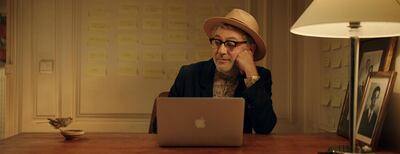
"Jacques Tati had zero influence on my style," claims Suleiman. "Until I finished my Chronicle of a Disappearance [in 1986] I had not seen a film by Tati, or Buster Keaton, the two people I am most affiliated with. I was influenced by people whose work looks nothing like mine, directors such as Yasujiro Ozu, Robert Bresson, Hou Hsiao-hsien and Takeshi Kitano."
The action starts with Suleiman in the usual surrounds of Nazareth, where neighbours steal the fruits from each others lemon trees, Israeli cadets wear sunglasses while the Palestinian woman they carry in the back of their car sports a blindfold and Suleiman looks on at the society with bemusement. Suleiman believes other places around the world must be heaven and he ventures to Paris and then to New York trying to raise finance for his new films and observing the European and American societies.
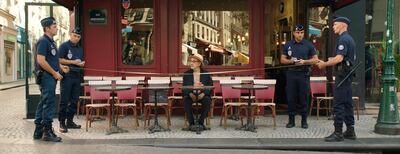
At first he sees la belle vie de Paris, sitting in a cafe drinking coffee as beautiful women who look like models and dress like those in commercials walk by. As he spends more time there, he starts to see a racially segregated society where the cleaners are all black immigrants, the homeless are left on the street and the police wield so much power and control. What's aesthetically impressive is that Suleiman lays the city bare by filming on streets that are as eerily empty as the London roads in the post-apocalypse world of 28 Days Later. This is in contrast to the New York we will later see, where he sees everyone carrying huge guns in a city that is so full of hustle and bustle and a threat around every corner.
In the auteur's previous films the action all takes place in Nazareth and the Palestinian-Israeli conflict is tackled directly. What marks It Must Be Heaven out is that Israel is not even mentioned. "There is not much more to say about that place that almost everything has been said about," he says, choosing even in interviews not to mention Israel.
“I think turning my back is a statement by itself. It’s like saying it’s the time to no longer negotiate with the place when it has become a place of evil, a place that is purely 100 per cent fascistic. You have to uproot, you don’t deal with it anymore.”
He chose to take the character to Paris and New York, “For a reason that is almost as simple as I am. New York and Paris are two places that I have lived in for a long time, 14 years here, and 14 years there, so I’m familiar with the humour of the places.”
It also stems from the way that Suleiman creates his absurdist sketches, which play next to each other like a series of vignettes, building information on the society rather than being driven by a plot or a narrative thread.

Suleiman made the streets empty, he says he did this “in order to reveal the bare bones of Paris, to show the oppressed, the Arabs being chased by police and the homeless. By doing it this way, I hoped to show the state of things.”
It’s a world where everyone now has to go through vigorous security checks at airports, gun ownership is driven by fear and racism permeates. When he goes to see a financier in France, his script is criticised for ‘Not being Palestinian enough.’
The scene comes from the filmmaker’s own experiences when trying to get his first film made. He was thrown out of a few production offices in Paris, accused of being an American puppet because he was living in New York at the time.
He says, "The reason was because there is funny stuff in the script and because they had not witnessed any kind of violence. Palestine had to be tragic in the [producers'] opinions ... they knew more about the Palestinian cause than Palestinians themselves, without ever having set foot there."
In New York he only gets as far as the lobby, where he pitches making a comedy set in the Middle East and is told dismissively by a producer, "Oh that's funny already," before she walks off with Gael Garcia Bernal. No one seems interested in his perspective on Palestine, not unless he can show that it can satisfy the needs of the market, an Occidental market.
One of the reasons that the director takes so much time between his films is because the scripts are based on events that he has witnessed: "Lived experiences are an essence for my writing, as you can see, most of the events come from moments of my life, so it takes a long time."
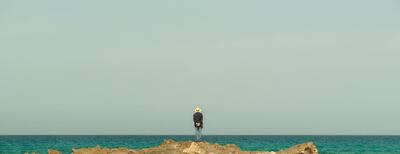
His overarching observation is that the world has become more like Palestine. State control is being asserted everywhere and people are encouraged to live in a constant state of fear. It is a film about the world he witnesses, one where “class, the economic gap, migration, anxiety and violence” pervades. “It’s about discrimination, it’s about downgrading by colour, highlighting the collateral damage in the post-colonial world.”
It’s a film that is driven by an energy and path he set himself upon when he initially set about writing the script, “This one from the beginning I promised myself that I’m going to go more drastic, crazier and to try and match all these different finalities and styles of humour.”
